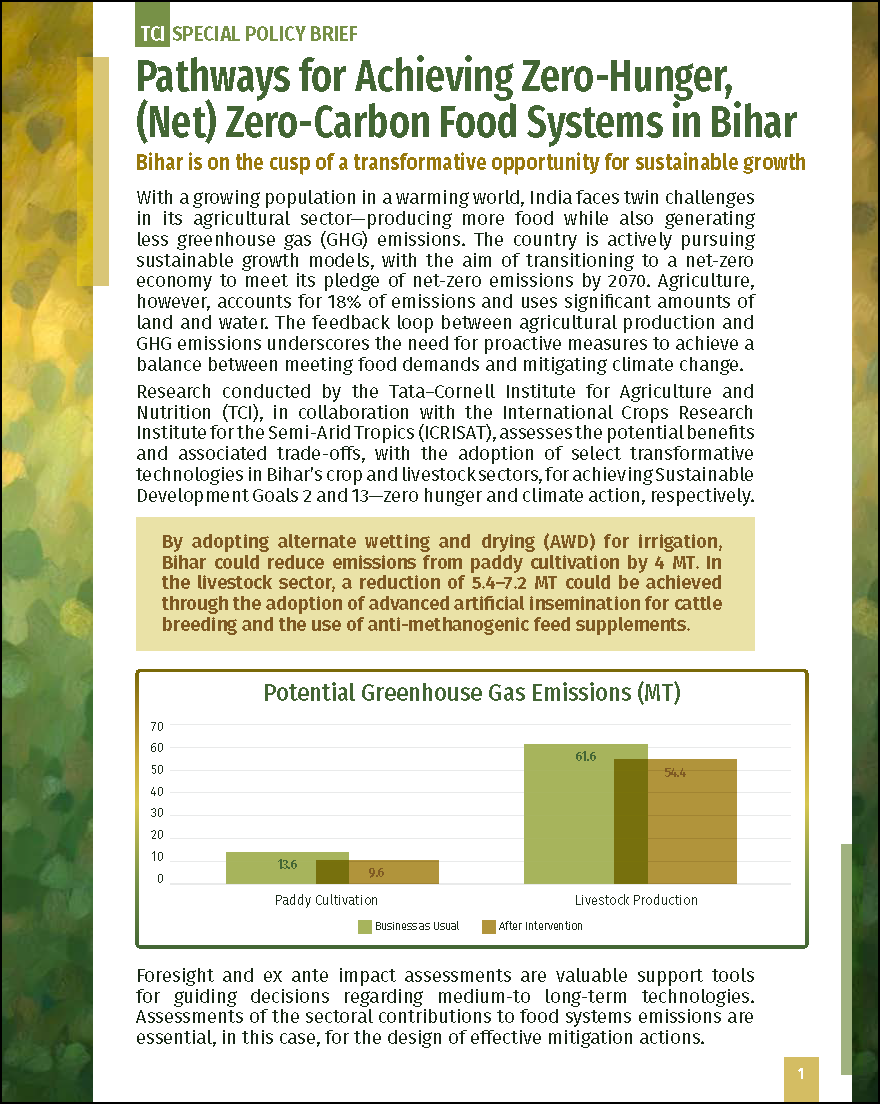Pathways for Achieving Zero-Hunger, (Net) Zero-Carbon Food Systems in Bihar
 This special policy brief provides estimates of the potential reduction in greenhouse gas (GHG) emissions that could be achieved in Bihar by adopting three transformational technologies in the state’s agricultural sector: alternate wetting and drying, advanced artificial insemination, and anti-methanogenic feed supplements. This analysis provides policymakers with key information for reducing the environmental footprint of farming in Bihar without sacrificing agricultural productivity.
This special policy brief provides estimates of the potential reduction in greenhouse gas (GHG) emissions that could be achieved in Bihar by adopting three transformational technologies in the state’s agricultural sector: alternate wetting and drying, advanced artificial insemination, and anti-methanogenic feed supplements. This analysis provides policymakers with key information for reducing the environmental footprint of farming in Bihar without sacrificing agricultural productivity.
Reducing agricultural emissions
By adopting alternate wetting and drying for irrigation, Bihar could reduce emissions from paddy cultivation by 4 MT. In the livestock sector, a reduction of 5.4–7.2 MT could be achieved through the adoption of advanced artificial insemination for cattle breeding and the use of anti-methanogenic feed supplements.
A controlled irrigation technology, alternate wetting and drying uses less water than continuous flooding for paddy cultivation, resulting in lower greenhouse gas emissions. TCI research shows that Bihar’s southwest and northwest agroecological zones have the highest potential to reduce emissions using this technology.
Advanced artificial insemination through the use of sex-sorted semen can improve livestock productivity, allowing farmers to keep smaller herds, which lowers emissions. TCI research reveals that, by 2050, cattle farmers in Bihar could earn INR 207.5 million in additional income from milk production by using advanced artificial insemination, with an accompanying reduction in emissions. Additional emissions reductions can be achieved by using anti-methanogenic feed supplements.
Zero-Hunger, Zero-Carbon Food Systems
This policy brief was published as a part of TCI’s project on Zero-Hunger, Zero-Carbon Food Systems. The project aims to support the reduction of GHG emissions associated with agriculture while improving productivity and benefiting farmer livelihoods.

